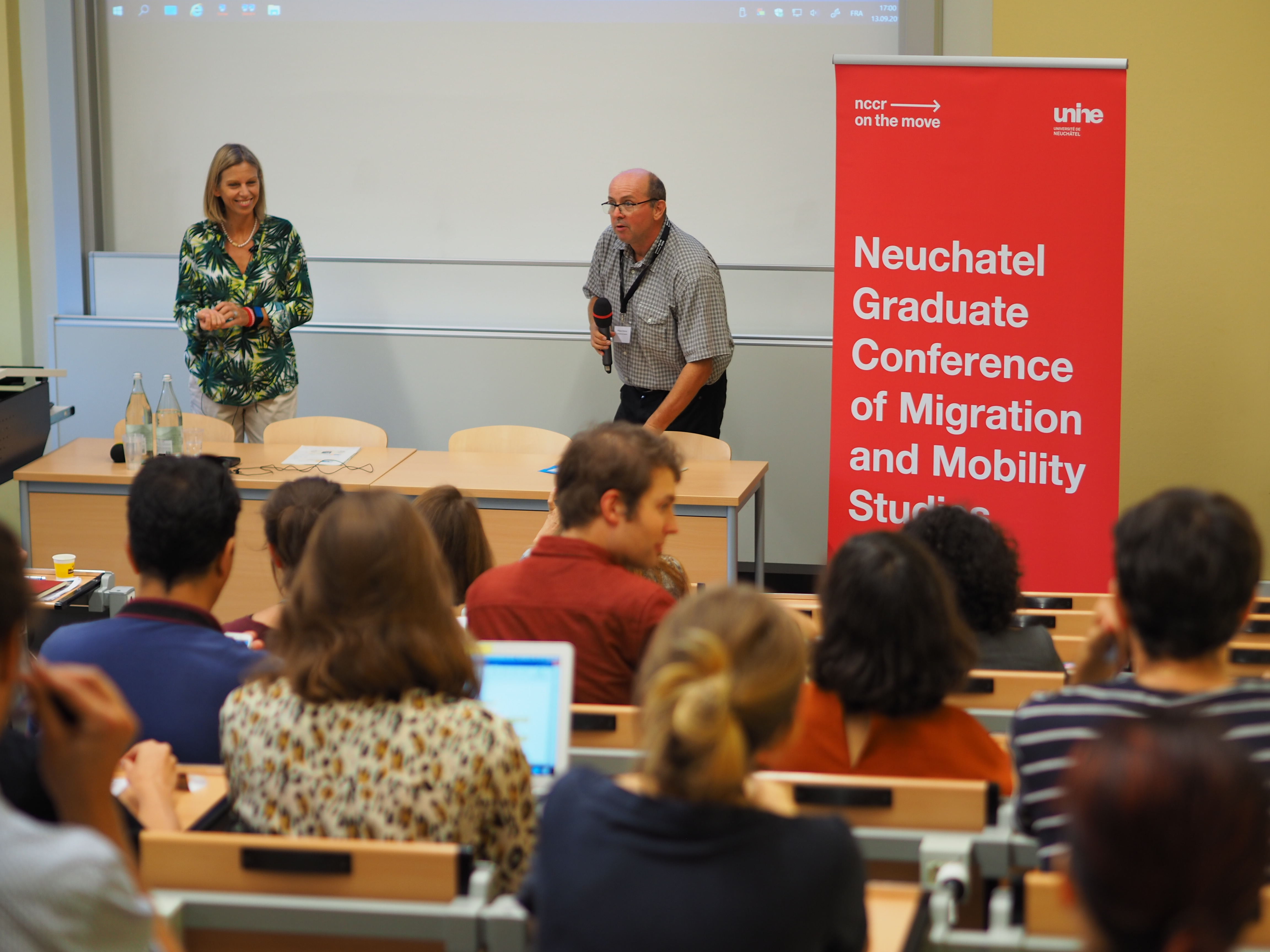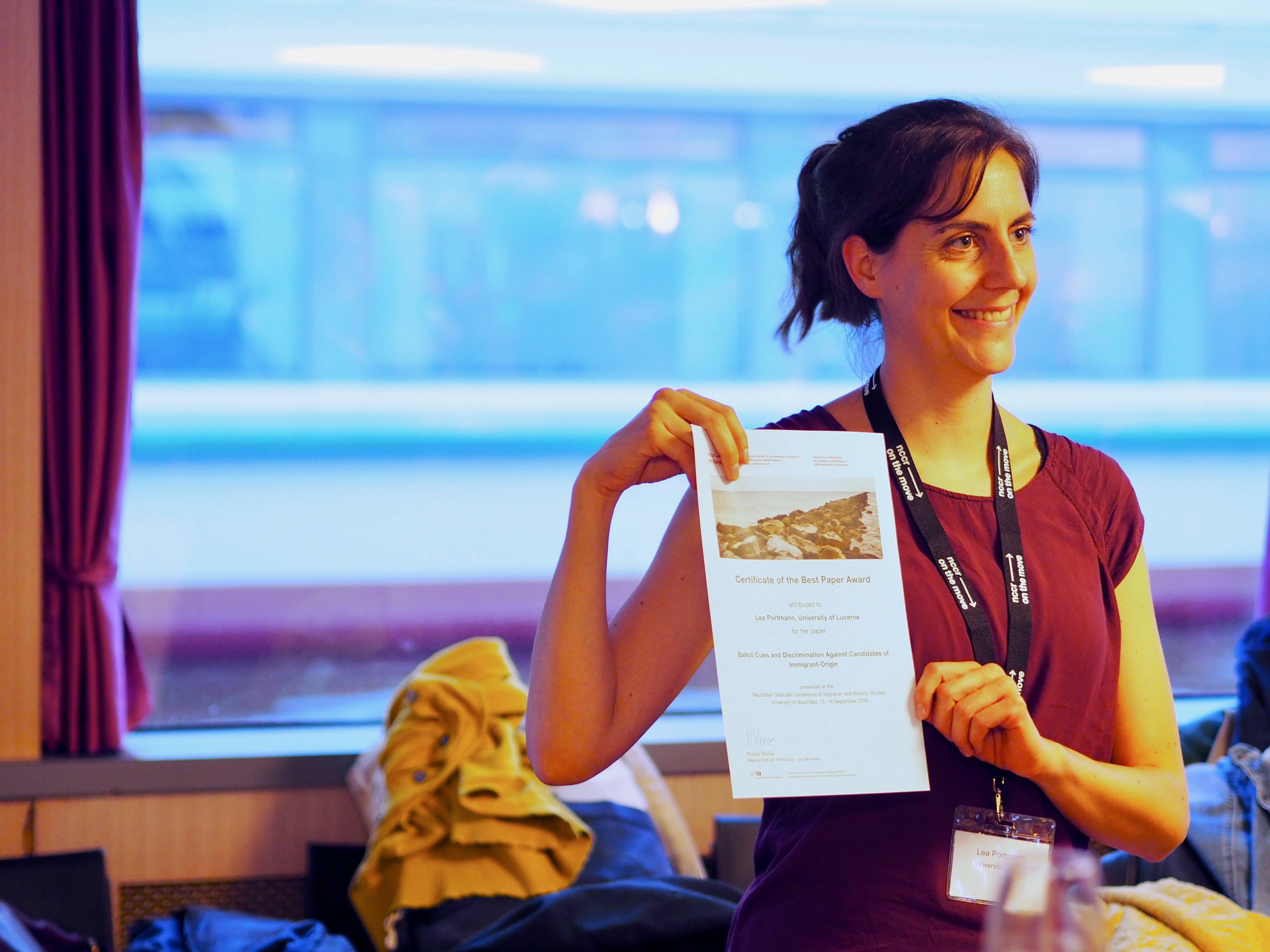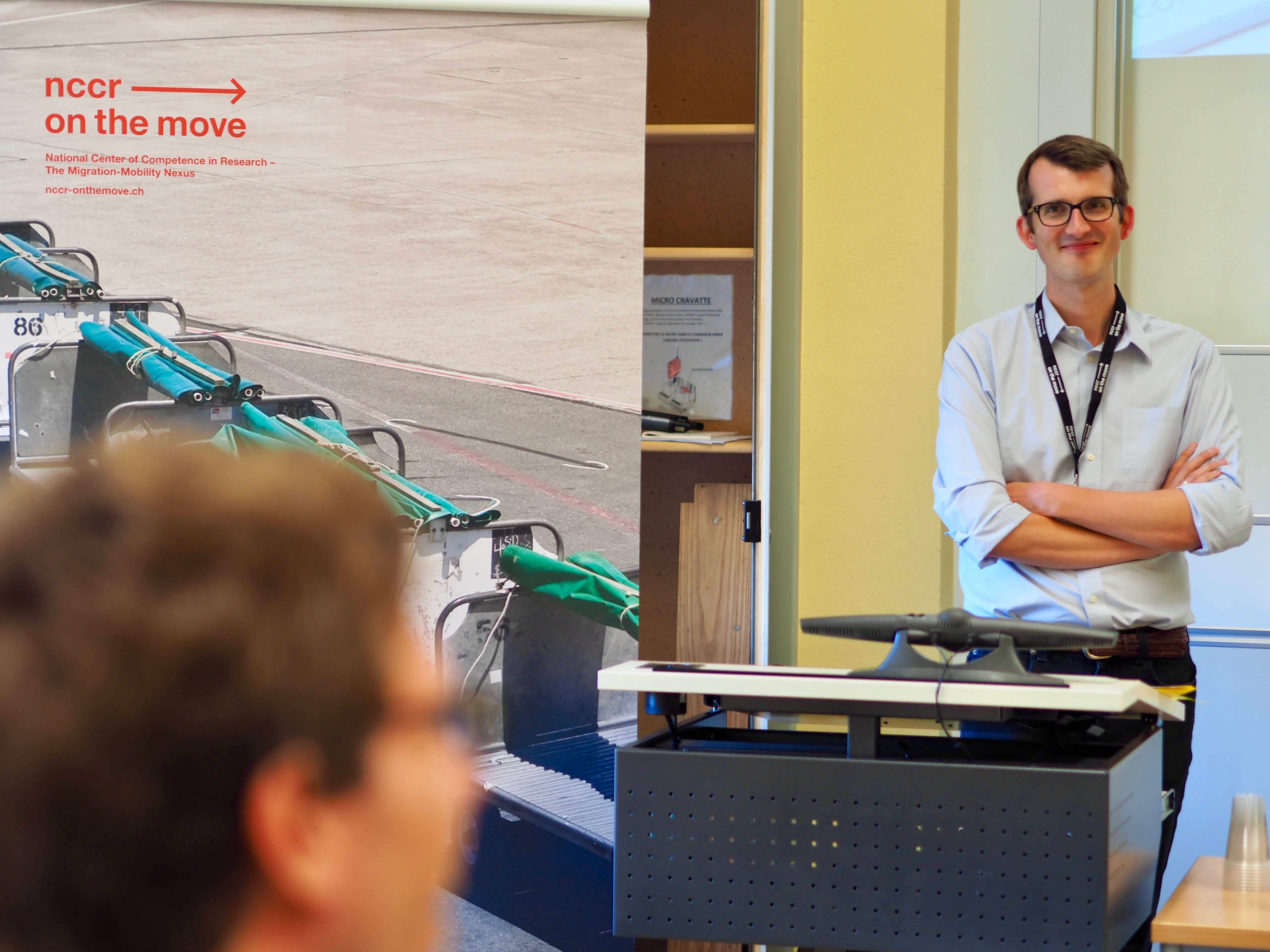Looking Back at the 2018 Neuchâtel Graduate Conference of Migration and Mobility Studies
On the 13 and 14 of September the University of Neuchâtel hosted the second edition of the Neuchâtel Graduate Conference of Migration and Mobility Studies with 38 doctoral and postdoctoral researchers coming from 12 countries, whose presentations were organized in 13 thematic panels with different disciplinary perspectives.
 Prof. Philippe Wanner, Deputy Director of the nccr – on the move, introducing Prof. Anna Triandafyllidou, European University Institute
Prof. Philippe Wanner, Deputy Director of the nccr – on the move, introducing Prof. Anna Triandafyllidou, European University Institute
This year’s conference aimed at connecting research on Switzerland with global trends, notably the return of nationalism and discrimination, the policies of asylum and refuge, and transnational engagement of migrants across countries. The selection committee for the Best Paper Award composed of Gianni D’Amato (Professor at the University of Neuchâtel and Director of the nccr – on the move), Anita Manatschal (Professor at the University of Neuchâtel), Elie Michel (Scientific Officer at the nccr – the move), and Joelle Moret (Knowledge Transfer Officer at the nccr – on the move), noted that this year’s contest had many excellent papers among the top selection. In the end, the Award went to Lea Portmann from the University of Lucerne for her paper “Ballot Cues and Discrimination against Candidates of Immigrant-Origin”. The jury specified that her work stands out for the following reasons: it is well elaborated, very convincing in terms of research gap addressed, research design, and the impressive set of original data collected by the author and her team.
 The Winner of the Best Paper Award Lea Portmann, Doctoral Student at the University of Lucerne
The Winner of the Best Paper Award Lea Portmann, Doctoral Student at the University of Lucerne
In their keynote lectures, professors Anna Triandafyllidou (European University Institute) and Birte Siim (Aalborg University) reflected on the relationship between Migration, Nation, and Populism. Anna Triandafyllidou explained that increased international mobility has been a catalyst for the return of nationalism. International mobility and migration do not bode well with what Triandafyllidou called “the destructive forces of nationalism”: closure, authoritarianism, anti-liberalism. At the same time, she pleaded for a reconciliation of globalization with an ideal community of belonging and social cohesion, which represent “the constructive forces of nationalism”. Birte Siim took up on this point and argued that both populism and nationalism have returned from the margins to the mainstream of the political discourse because they address social issues that have been disregarded by the leading political actors in the recent past: economic marginalization, political exclusion, and greater distance between the cities and the peripheries. The problem with nationalism, she argued, is that it suggests that the nation state cannot solve these issues alone.
In his workshop on “Publishing in Migration and Mobility Journals”, Jean-Michel Lafleur (University of Liege) sketched an overview of the publication landscape. He argued that there is little doubt scientific interest in migration has boomed over the last ten years: frequency in journals increased from 8 to 15 issues for Ethnic and Racial Studies, from 8 to 16 issues for the Journal of Ethnic and Migration Studies, while new journals like Migration Studies and Comparative Migration Studies have also been created. At the same time, young researchers find it increasingly hard to have their voice heard in such a booming academic field: rejection level has increased dramatically and even articles which are published are often ignored and sink into oblivion. Lafleur argued that the challenge today is not only about being published but also about being read. For this purpose, he encouraged researchers to plan ahead, be selective with publication offers, and publish in open access outlets. Overall, the objective of young scholars should be that of making research targeted, relevant, and easy to access.
 Prof. Jean-Michel Lafleur, University of Liège
Prof. Jean-Michel Lafleur, University of Liège
The Neuchâtel Graduate Conference of Migration and Mobility Studies aims at pursuing precisely these objectives. With two editions now in the archive, we will continue the work next year, offering young researchers from all over the world the opportunity to meet and discuss their work. If you want to be updated, follow us on twitter or sign up into our newsletter and our blog.
Elie Michel, Scientific Officer at the nccr – the move
Lorenzo Piccoli, Scientific Officer at the nccr – the move
Interview of Prof. Anna Triandafyllidou, European University Institute, after her Keynote Lecture on Migration, Nation, and Populism at the Neuchâtel Graduate Conference, 13-14 September 2018 by Lorenzo Piccoli
Interview of Prof. Birte Siim, Aalborg University, after her Keynote Lecture on Migration, Nation, and Populism at the Neuchâtel Graduate Conference, 13-14 September 2018 by Lorenzo Piccoli

